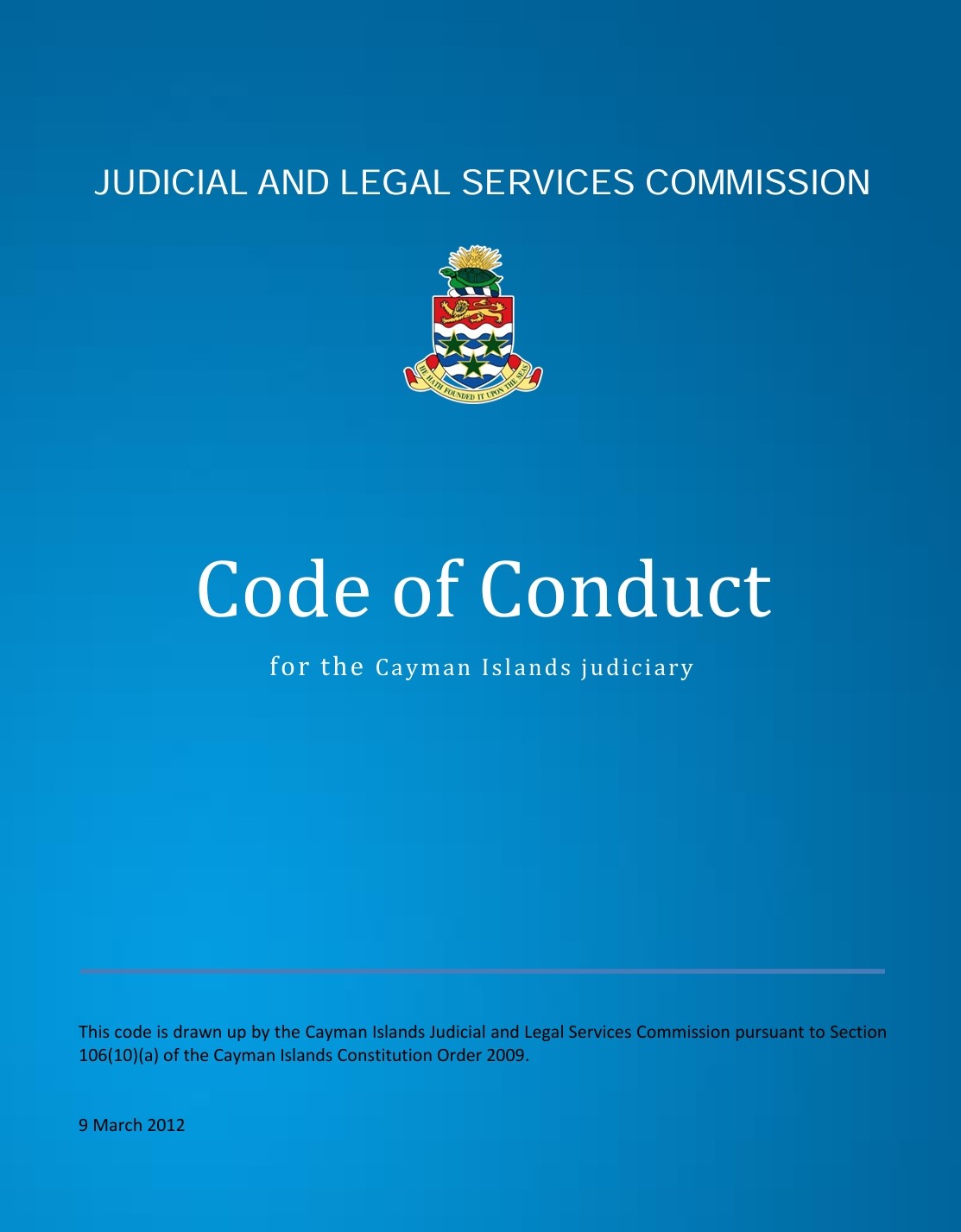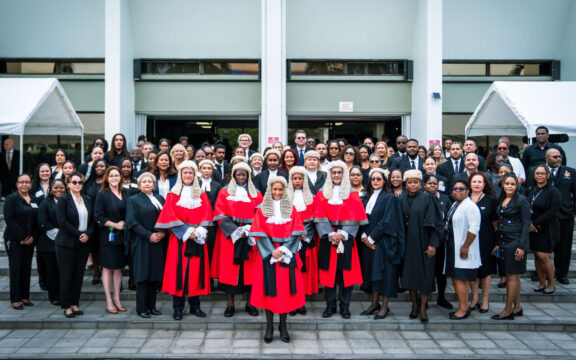
Judicial Code of Conduct
Section 106 (10)(a) of the Cayman Islands Constitution Order 2009 (“the Constitution”) requires the Judicial and Legal Services Commission to draw up a code of conduct for the judiciary. The Commission has approached that task on the basis that such a Code should be founded on the commonly accepted values which were adopted by the international judicial community some twenty years ago and have become known as the Bangalore Principles of Judicial Conduct. The Commission believes that those who accept appointment as judges and magistrates in the Cayman Islands will recognise those principles as fundamental to the proper discharge of the duties of their office, and that adherence to those principles is essential if public confidence in the judiciary is to be maintained.
Section 106 (10)(a) of the Cayman Islands Constitution Order 2009 (“the Constitution”) requires the Judicial and Legal Services Commission to draw up a code of conduct for the judiciary.
Section 106 (10)(a) of the Cayman Islands Constitution Order 2009 (“the Constitution”) requires the Judicial and Legal Services Commission to draw up a code of conduct for the judiciary.
The Bangalore Principles are enshrined in a succinct statement of six core values:
- Judicial independence is a prerequisite to the rule of law and a fundamental guarantee of a fair trial. A judge shall therefore uphold and exemplify judicial independence in both its individual and institutional aspects.
- Impartiality is essential to the proper discharge of the judicial office. It applies not only to the decision itself but also to the process by which the decision is made.
- Integrity is essential to the proper discharge of the judicial office.
- Propriety and the appearance of propriety are essential to the performance of all of the activities of a judge.
- Ensuring equality of treatment to all before the courts is essential to the due performance of the judicial office.
- Competence and diligence are prerequisites to the due performance of judicial office.








